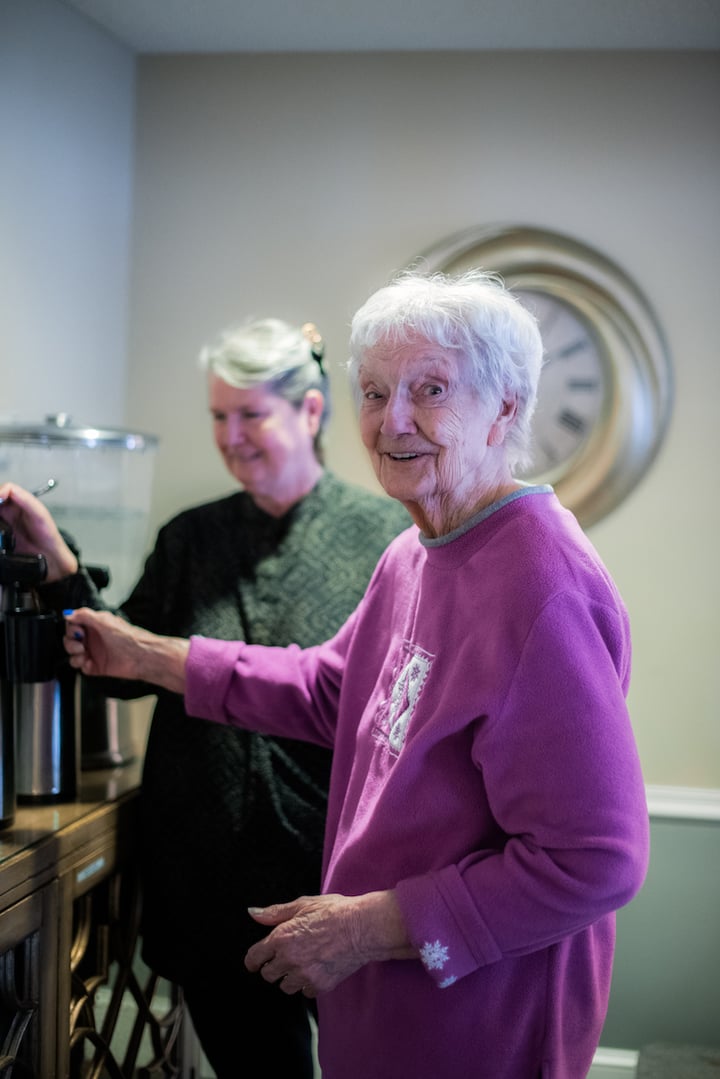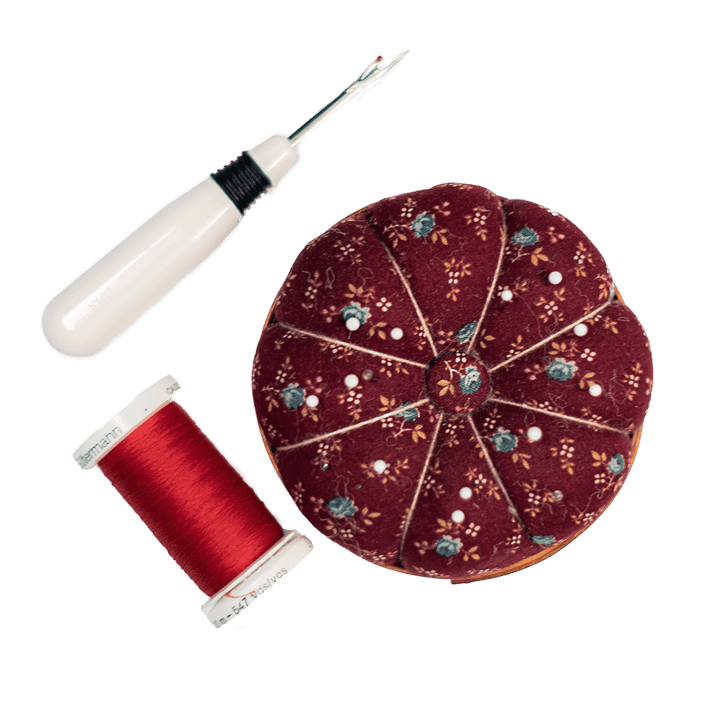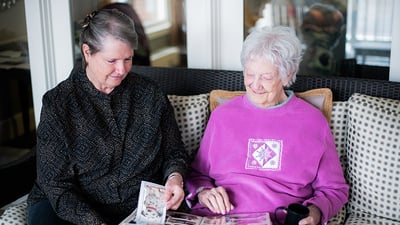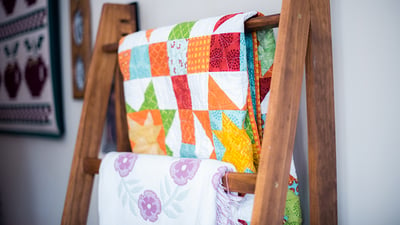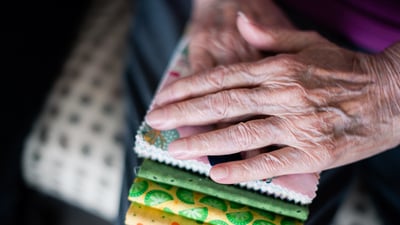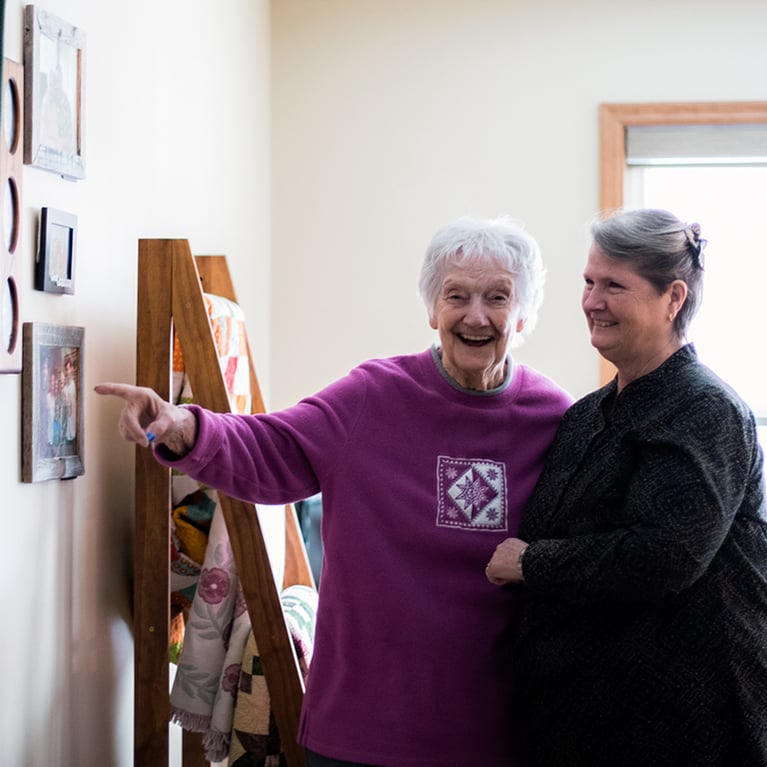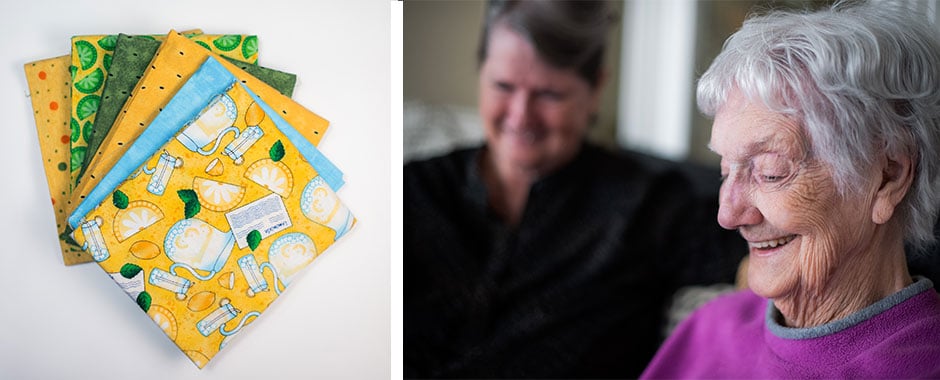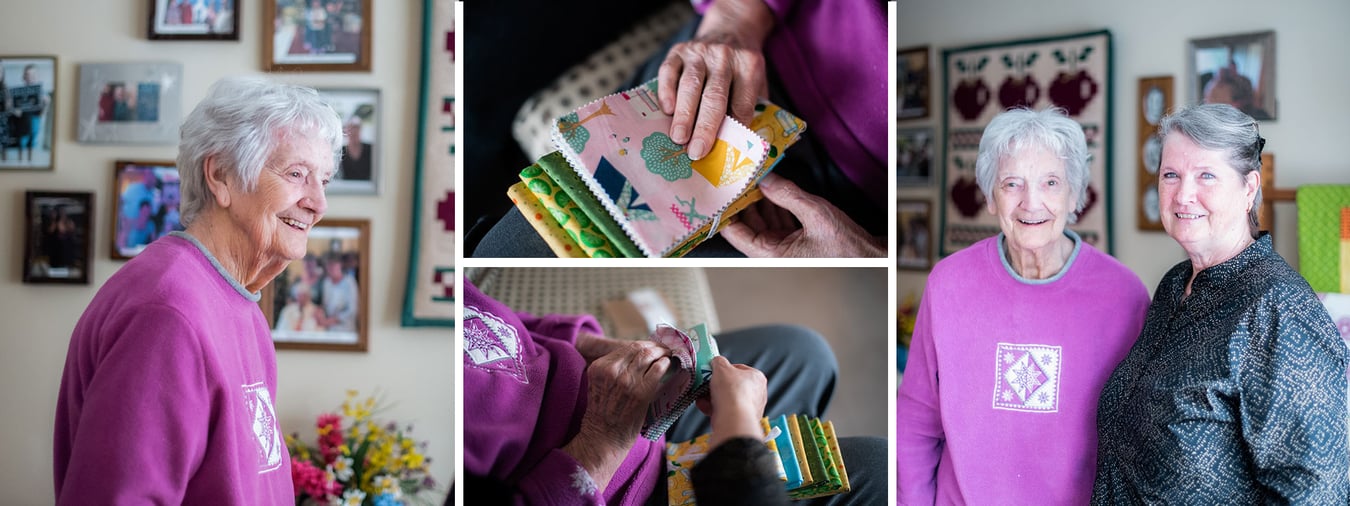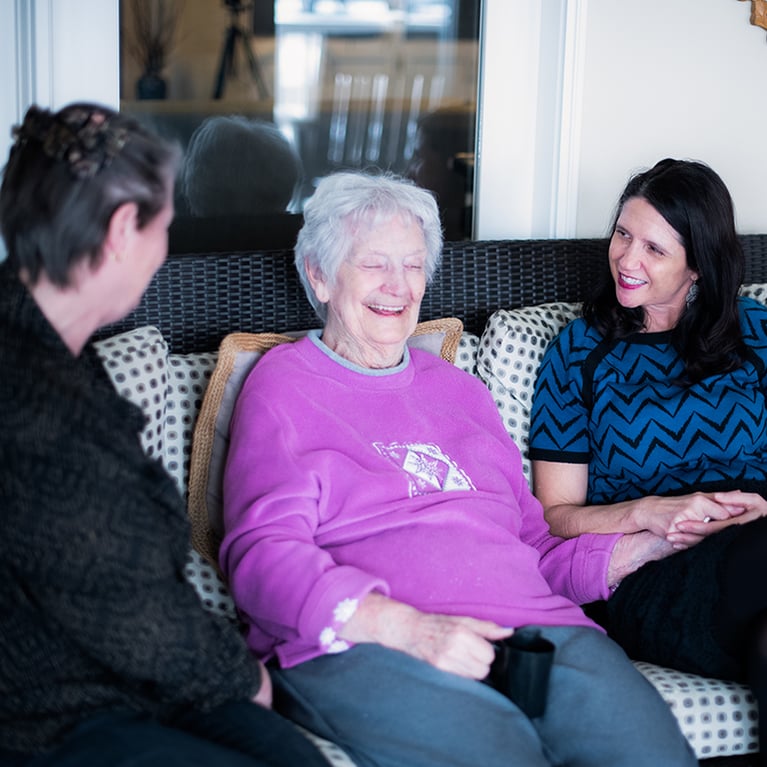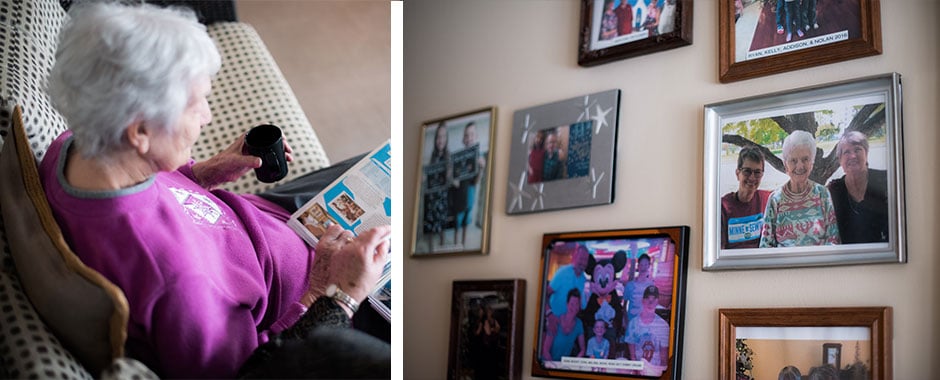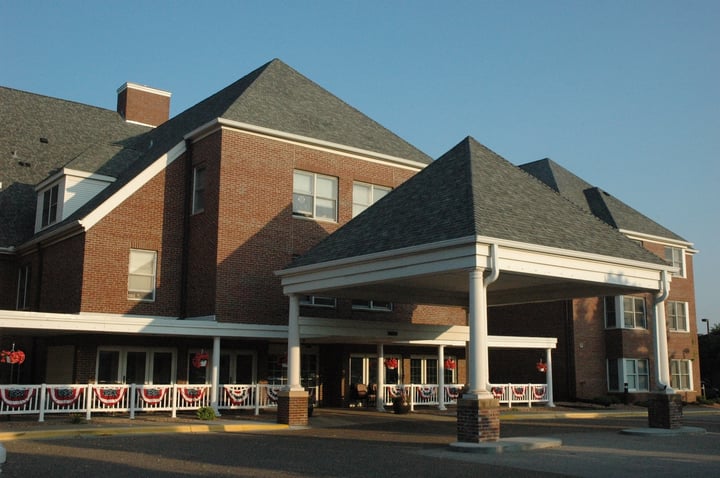The Signs & Sounds of Happiness
As Alzheimer’s progresses in patients, cognition declines. It can be hard to communicate with people affected by the disease. For families like Dimple’s, knowing she’s safe and well cared for at Walker is one thing, but witnessing her happiness is another, especially if she’s unable to effectively tell her daughters how she feels.
Kim said, “She was whistling the other day, which was her favorite way to wake us up as kids. She'd whistle and come into our bedrooms, just happy and loud like that. And, she's a terrible whistler! But it never stopped her. She would whistle us awake every day. She was doing that upstairs the other day as we were going to lunch, so it just makes me certain that she likes it here. There’s absolutely no denying it.”
Kim smiles at the memory, adding, “On a regular basis my husband and I will take her out to breakfast at her favorite restaurant, which is the Original Pancake House. We try to take her out to things like driving to see Christmas lights, those types of things. When I was growing up, one of Mom’s favorite sayings, when we got home, she would say, home again, home again, boopity boop." I don’t know where that came from, or how it started, I just know she always said it. The last time we brought her back home from the Original Pancake House, as we drove in the driveway, she said, home again, home again, boopity boop. And at that point, I knew she was happy being where she is. And that makes me feel happy. Happy that she's happy, happy that she's comfortable, happy that she likes the people she’s surrounded by. I am so happy with this place.”
